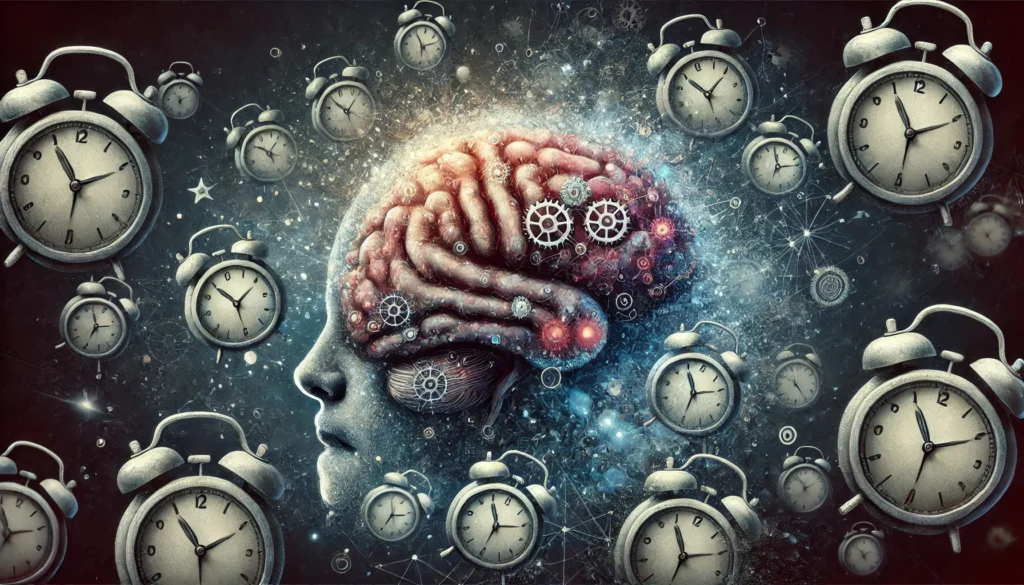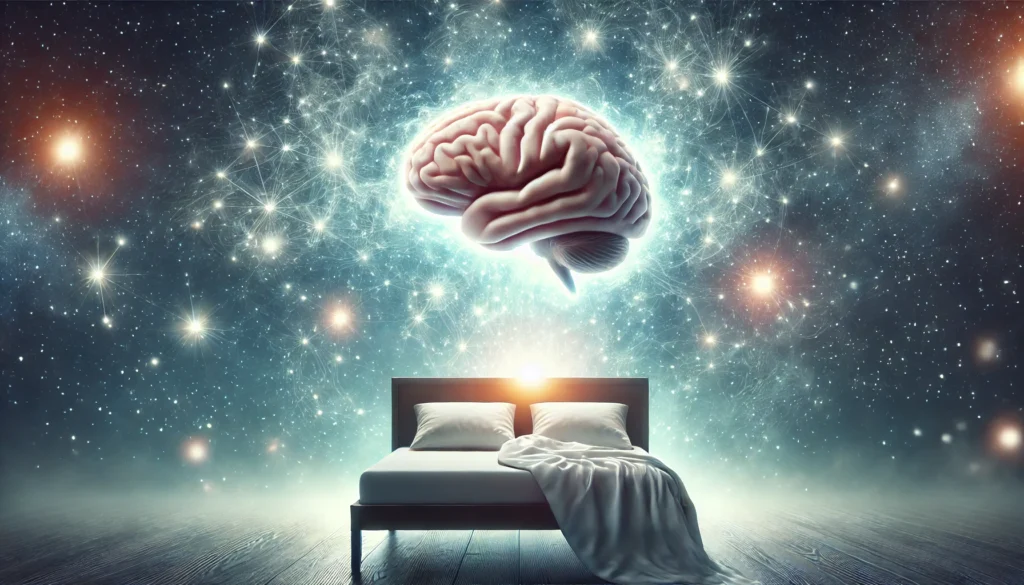Sleep is not merely a passive state of rest; it is a dynamic, biologically essential process that profoundly influences nearly every system in the human body. Among its most vital functions is its role in maintaining and enhancing cognitive health. As modern lifestyles grow increasingly frenetic and digitally saturated, the tendency to undervalue sleep has become dangerously common. Yet, neuroscience has revealed with compelling clarity that the importance of sleep to cognitive health cannot be overstated. The brain, in its remarkable complexity, relies on high-quality sleep to regulate memory consolidation, emotional processing, decision-making, and attention. Without adequate sleep, the brain begins to falter in measurable and, over time, potentially irreversible ways.
You may also like : Best Things for Brain Health: Expert-Backed Strategies to Keep Your Mind Sharp
Emerging research has spotlighted how even modest sleep deprivation can begin to degrade cognitive performance. From slower reaction times to impaired judgment, the effects of sleep deprivation on cognitive performance can manifest rapidly and worsen cumulatively. Over the long term, chronic sleep deficits are associated with a heightened risk of neurodegenerative disorders such as Alzheimer’s disease, further underscoring why sleep is important for cognitive health across the lifespan. In the realm of brain health and longevity, prioritizing sleep is not merely a matter of comfort but a strategic imperative for preserving the brain’s structure, function, and resilience.
Understanding the Architecture of Sleep and Its Cognitive Roles
To appreciate the cognitive effects of sleep deprivation, one must first understand the architecture of sleep itself. Sleep is composed of multiple stages that cycle throughout the night, including non-rapid eye movement (NREM) stages 1 through 3, and rapid eye movement (REM) sleep. Each stage contributes uniquely to brain function and health. During deep NREM sleep, the brain engages in memory consolidation, synaptic pruning, and the removal of metabolic waste products, including amyloid-beta plaques associated with Alzheimer’s disease. Meanwhile, REM sleep is essential for emotional regulation, creative thinking, and integrating complex information.
This intricate interplay between sleep stages supports neuroplasticity—the brain’s ability to adapt and reorganize. Without this nightly maintenance, neurons struggle to function efficiently, leading to cognitive deficits that can range from subtle forgetfulness to profound disorientation. As such, the importance of sleep to cognitive health lies not just in the number of hours spent in bed but in the quality and composition of the sleep cycle. Poor sleep hygiene, stress, and irregular schedules can disrupt this architecture, leaving the brain unable to perform its essential restorative duties.
The Immediate Cognitive Impact of Sleep Deprivation
Even a single night of insufficient sleep can noticeably impair cognitive functioning. Tasks that require attention, working memory, and logical reasoning begin to suffer. Studies utilizing neuroimaging have demonstrated that sleep-deprived individuals show reduced activity in the prefrontal cortex, a brain region responsible for executive functions such as decision-making, impulse control, and goal setting. This diminished activity translates into poor performance on complex cognitive tasks and greater susceptibility to distractions.
Furthermore, the effects of sleep deprivation on cognitive performance extend beyond slower thinking. Emotional instability also becomes more pronounced, as sleep loss hampers the communication between the amygdala and the prefrontal cortex. This disruption leads to heightened emotional reactivity and impaired judgment, both of which can undermine academic performance, interpersonal relationships, and workplace productivity. Whether navigating a challenging conversation or making a critical decision, sleep-deprived individuals often find themselves at a disadvantage.
Memory Consolidation and the Role of Sleep in Learning
One of the most well-documented cognitive benefits of sleep is its role in memory consolidation. During NREM sleep, particularly stage 3 slow-wave sleep, newly acquired information is transferred from the hippocampus to long-term storage in the neocortex. This process is crucial for transforming short-term memories into durable knowledge. REM sleep complements this function by integrating emotionally charged memories and fostering associative thinking, which is key for problem-solving and creativity.
In educational settings, the cognitive effects of sleep deprivation become acutely evident. Students who consistently get less than the recommended amount of sleep perform worse on tests, struggle with information recall, and exhibit reduced motivation. This connection between sleep and learning underscores why sleep is important for cognitive health throughout all stages of life, from childhood to old age. Sleep not only reinforces what we have learned but prepares the brain to absorb new information the following day.

Sleep and Neurodegeneration: A Pathway to Cognitive Decline
While short-term cognitive impairments are concerning, the long-term consequences of poor sleep are even more alarming. Chronic sleep deprivation has been linked to structural brain changes, including reduced gray matter volume and disrupted connectivity in key neural networks. More significantly, it accelerates the accumulation of neurotoxic proteins such as amyloid-beta and tau, both of which are hallmarks of Alzheimer’s disease.
The glymphatic system, which functions primarily during deep sleep, plays a critical role in clearing these waste products from the brain. When sleep is fragmented or insufficient, this cleansing process is compromised, leading to toxic buildup that damages neurons. Consequently, one of the most significant cognitive effects of sleep deprivation is an increased risk of developing neurodegenerative conditions. By understanding the link between sleep and long-term brain health, individuals can better appreciate the importance of sleep to cognitive health and longevity.
Sleep Quality Versus Sleep Quantity: Which Matters More?
While sleep duration often dominates public discourse, sleep quality is equally vital. A full eight hours of restless, fragmented sleep may be less beneficial than six hours of deep, uninterrupted sleep. Sleep efficiency, sleep latency, and the percentage of time spent in restorative stages all contribute to cognitive outcomes. Polysomnographic studies have shown that individuals with high sleep efficiency demonstrate better performance on memory and attention tests, even when total sleep time is lower.
Poor sleep quality can stem from a variety of sources, including untreated sleep disorders such as sleep apnea, high stress levels, poor diet, and excessive screen time before bed. Identifying and addressing these factors can dramatically enhance sleep quality and, in turn, cognitive health. For aging populations especially, where both sleep duration and sleep quality tend to decline, interventions that promote deeper, more consistent sleep can help preserve mental sharpness and delay cognitive decline. Thus, the question of why sleep is important for cognitive health must also include considerations of quality alongside quantity.
The Role of Circadian Rhythms in Cognitive Health
Circadian rhythms, governed by the suprachiasmatic nucleus in the brain’s hypothalamus, regulate the sleep-wake cycle and exert powerful influences on cognitive performance. These 24-hour biological rhythms respond to environmental cues such as light and temperature, helping to synchronize sleep patterns with the day-night cycle. Disruptions to circadian rhythms—whether through shift work, frequent travel across time zones, or irregular sleep schedules—can desynchronize internal clocks and impair cognition.
Circadian misalignment has been shown to reduce alertness, impair attention, and alter mood, all of which contribute to diminished cognitive functioning. Moreover, research suggests that long-term circadian disruption may exacerbate age-related cognitive decline and increase vulnerability to neurodegenerative diseases. Maintaining regular sleep-wake schedules and prioritizing exposure to natural light during the day can help reinforce healthy circadian rhythms. These strategies are not only vital for short-term alertness but also for sustaining long-term brain health, particularly in an aging population.

Sleep Disorders and Their Cognitive Consequences
Sleep disorders such as insomnia, sleep apnea, restless legs syndrome, and narcolepsy have profound cognitive consequences. Insomnia, characterized by difficulty falling or staying asleep, is associated with increased levels of stress hormones that can impair memory and learning. Sleep apnea, marked by repeated interruptions in breathing during sleep, leads to chronic oxygen deprivation and fragmented sleep, both of which contribute to cognitive impairments.
Patients with untreated sleep apnea often experience deficits in executive function, attention, and verbal memory. In more severe cases, these impairments can mimic early-stage dementia. Treatment with continuous positive airway pressure (CPAP) devices has been shown to reverse some of these cognitive deficits, highlighting the role of effective sleep disorder management in protecting brain health. Understanding these conditions and their impact allows for more targeted interventions to mitigate the cognitive effects of sleep deprivation and promote longevity.
Sleep Across the Lifespan: Cognitive Implications at Every Age
Sleep needs and patterns evolve throughout the human lifespan. In infancy and early childhood, high sleep demand supports rapid brain development and learning. Adolescents experience a natural shift in circadian rhythms, often leading to later bedtimes that conflict with early school start times. This misalignment can hinder academic performance and emotional regulation. For adults, career pressures, parenting responsibilities, and lifestyle choices often encroach on sleep, gradually eroding cognitive resilience.
In older adults, changes in sleep architecture—such as decreased time in slow-wave and REM sleep—can exacerbate age-related cognitive decline. However, this decline is not inevitable. Evidence suggests that older adults who maintain consistent, high-quality sleep patterns exhibit better memory, processing speed, and executive function. The importance of sleep to cognitive health thus spans all stages of life, and tailored interventions at each age can optimize cognitive outcomes and promote longevity.
Nutritional and Lifestyle Interventions for Better Sleep and Brain Health
Diet and lifestyle choices play a significant role in sleep quality and cognitive performance. Nutrients such as magnesium, omega-3 fatty acids, and tryptophan support the production of neurotransmitters involved in sleep regulation, including serotonin and melatonin. Diets rich in vegetables, fruits, whole grains, and lean proteins are associated with better sleep and improved cognitive outcomes.
Physical activity also enhances sleep by reducing stress, regulating circadian rhythms, and promoting deeper sleep stages. Mindfulness practices such as meditation and deep breathing exercises have been shown to improve sleep quality and reduce cognitive decline, particularly in older adults. Limiting caffeine and alcohol, especially in the hours leading up to bedtime, can prevent disruptions to sleep architecture. When combined, these lifestyle interventions offer a powerful, non-pharmacological approach to enhancing both sleep and brain health.
The Future of Sleep Science in Cognitive Health and Longevity
As scientific understanding of sleep deepens, new frontiers are emerging in the quest to optimize brain health through better sleep. Technologies such as wearable sleep trackers, blue light filters, and smart mattresses are enabling individuals to monitor and improve their sleep habits with unprecedented precision. Meanwhile, advances in chronotherapy—the strategic timing of treatments to align with circadian rhythms—are opening new avenues for enhancing cognitive outcomes and even boosting the effectiveness of certain medications.
Pharmaceutical research is also exploring drugs that selectively enhance sleep architecture without the side effects of traditional sedatives. These innovations hold promise not only for those with sleep disorders but for anyone seeking to bolster cognitive resilience and delay the onset of age-related decline. However, even the most sophisticated interventions cannot substitute for the foundational practices of good sleep hygiene, regular schedules, and respect for the body’s natural rhythms. Ultimately, the importance of sleep to cognitive health lies not only in the prevention of disease but in the promotion of optimal mental performance and emotional well-being.
Frequently Asked Questions (FAQ): The Importance of Sleep to Cognitive Health
1. Can improving sleep hygiene reverse the cognitive effects of long-term sleep deprivation?
Improving sleep hygiene can significantly help restore cognitive performance, especially in the early stages of sleep deprivation. Although chronic deprivation may cause structural changes in the brain over time, enhanced sleep routines can improve attention, memory recall, and emotional regulation. This demonstrates the importance of sleep to cognitive health even after prolonged periods of neglect. Strategies like consistent sleep schedules, minimizing screen exposure before bed, and optimizing the sleep environment can rejuvenate cognitive clarity. While not all damage is reversible, improvements in neuroplasticity suggest that quality sleep supports brain resilience and can mitigate some long-term cognitive effects of sleep deprivation.
2. How does social media use before bed influence sleep and cognition?
Late-night social media use can impair both sleep quality and cognitive function the following day. The blue light emitted by screens suppresses melatonin, disrupting circadian rhythms and delaying sleep onset. This reduction in sleep quality has cascading effects on cognitive health, often leading to slower reaction times, reduced attention span, and poor decision-making. Understanding why sleep is important for cognitive health becomes clearer when observing how fragmented rest from digital overstimulation compromises next-day mental performance. Reducing screen time before bed can prevent the subtle yet damaging cognitive effects of sleep deprivation linked to nighttime digital engagement.
3. Are naps beneficial or detrimental to long-term cognitive health?
When timed and limited appropriately, naps can serve as a powerful tool for cognitive restoration. Short naps of 10 to 30 minutes have been shown to improve alertness, learning capacity, and working memory. However, excessively long or late-day naps can interfere with nighttime sleep quality, which remains the cornerstone of cognitive vitality. Understanding the importance of sleep to cognitive health involves balancing the need for daily restoration with the preservation of deep, nighttime sleep architecture. In elderly populations, strategic napping may help offset age-related declines in cognitive function without undermining overall sleep quality.
4. How does sleep impact problem-solving and creative thinking?
Adequate REM sleep fosters abstract thinking, mental flexibility, and novel insight generation. These functions are essential in fields that require innovation, such as scientific research, entrepreneurship, and the arts. The effects of sleep deprivation on cognitive performance are particularly evident when tasks demand creativity, as the brain’s ability to synthesize unrelated ideas diminishes without sufficient REM sleep. Understanding why sleep is important for cognitive health offers insight into how entrepreneurs, engineers, and artists might benefit from optimizing their sleep to boost ideation. Overnight, the brain restructures knowledge, enabling more original and effective problem-solving the next day.
5. Do certain professions face higher cognitive risks due to sleep deprivation?
Yes, individuals in high-stakes or shift-based professions such as healthcare, aviation, and law enforcement often experience chronic sleep deficits. These conditions significantly elevate the risk of cognitive errors, burnout, and even ethical lapses. The cognitive effects of sleep deprivation in such roles can compromise not only individual performance but also public safety. Highlighting the importance of sleep to cognitive health in occupational wellness programs may reduce mistakes and improve decision-making in high-pressure environments. Institutional recognition of sleep’s cognitive value is crucial for developing support systems in fields where optimal function is critical.
6. Can mindfulness-based practices improve both sleep and cognitive performance?
Mindfulness-based interventions, such as meditation and breathwork, have been shown to improve sleep onset and reduce nighttime awakenings. These benefits extend to cognitive function, with regular practitioners reporting enhanced attention span, emotional regulation, and reduced mental fatigue. By calming the nervous system, mindfulness allows the brain to enter restorative sleep cycles more easily, supporting memory consolidation and executive function. In this way, mindfulness practices highlight the interconnected nature of mental well-being, emphasizing the importance of sleep to cognitive health. Incorporating these techniques into daily routines may offer a non-pharmaceutical path to long-term cognitive optimization.
7. What role does sleep play in managing cognitive symptoms of anxiety and depression?
Sleep acts as a regulatory force for brain areas associated with mood and cognition, including the amygdala and prefrontal cortex. Individuals with anxiety or depression often experience disrupted sleep, which in turn exacerbates cognitive symptoms like poor concentration, indecisiveness, and memory lapses. The cyclical relationship between mood disorders and sleep disturbance demonstrates why sleep is important for cognitive health and emotional stability. Cognitive-behavioral therapy for insomnia (CBT-I) has been particularly effective in breaking this cycle and improving both sleep and mental clarity. Prioritizing high-quality sleep is therefore essential for individuals managing mood-related cognitive difficulties.
8. Are there genetic differences in how people respond to sleep deprivation cognitively?
Emerging research suggests that genetic factors can influence one’s cognitive resilience to sleep deprivation. Variants in genes like PER3 and DEC2 appear to modulate circadian rhythms and affect how well individuals function cognitively on limited sleep. Some people may experience fewer cognitive effects of sleep deprivation due to these genetic advantages, while others suffer significant performance declines with even minor sleep loss. Understanding the importance of sleep to cognitive health at the genetic level may pave the way for personalized sleep strategies. As genomic research evolves, it may become possible to tailor cognitive health plans based on individual sleep biology.
9. How does poor sleep affect cognitive performance during multitasking?
Multitasking requires rapid task-switching, working memory, and sustained attention—cognitive domains particularly sensitive to sleep loss. Under conditions of sleep deprivation, individuals exhibit longer response times and greater error rates when attempting to juggle multiple demands. The brain’s ability to filter irrelevant stimuli and maintain task-focused behavior becomes compromised, which illustrates the profound effects of sleep deprivation on cognitive performance. Whether in academic, professional, or domestic settings, poor sleep erodes the mental agility necessary for effective multitasking. This reinforces why sleep is important for cognitive health in our increasingly stimulus-saturated environments.
10. What are some future innovations in sleep technology aimed at cognitive enhancement?
The future of sleep science is closely intertwined with cognitive enhancement, with innovations emerging in neurofeedback, wearable EEG devices, and smart lighting systems. These technologies aim to optimize sleep architecture, particularly slow-wave and REM sleep, for improved mental performance. Some experimental devices even offer targeted auditory stimulation during deep sleep to amplify memory consolidation processes. These advancements reflect growing recognition of the importance of sleep to cognitive health in both clinical and consumer markets. As the field evolves, we may see cognitive training protocols embedded within sleep technologies, offering new ways to boost brain function overnight.

Conclusion: Prioritizing Sleep for Cognitive Vitality and Lifelong Brain Health
In an age that often glorifies busyness and undervalues rest, recognizing the vital connection between sleep and brain health is more important than ever. The evidence is unequivocal: high-quality sleep is essential for memory consolidation, emotional regulation, and long-term cognitive resilience. The cognitive effects of sleep deprivation reach far beyond grogginess or forgetfulness; they represent a direct threat to our mental agility, emotional balance, and even our longevity.
Understanding why sleep is important for cognitive health empowers individuals to make informed choices that safeguard their brains against both immediate impairments and future decline. Whether through lifestyle adjustments, treatment of sleep disorders, or simply respecting natural sleep cycles, each effort to enhance sleep translates into meaningful gains in mental clarity and cognitive function. For those who aspire to longevity not only in years but in cognitive vitality, sleep must be regarded as a cornerstone of brain health—a powerful, yet often overlooked, force that shapes who we are and how we thrive.
sleep and brain health, sleep and memory consolidation, effects of insomnia on the brain, circadian rhythm and mental function, how sleep impacts decision making, brain fog from lack of sleep, neuroplasticity and sleep, poor sleep and Alzheimer’s risk, REM sleep and emotional regulation, sleep loss and executive function, mental clarity and rest, neurological recovery during sleep, brain detox during sleep, healthy sleep habits for cognition, aging and sleep quality, brain resilience and sleep, slow wave sleep and learning, sleep recovery and cognitive function, sleep hygiene for brain performance, sleep quality and mental performance
Further Reading:
The consequences of sleep deprivation on cognitive performance
How Lack of Sleep Impacts Cognitive Performance and Focus
Disclaimer
The information contained in this article is provided for general informational purposes only and is not intended to serve as medical, legal, or professional advice. While Health11News strives to present accurate, up-to-date, and reliable content, no warranty or guarantee, expressed or implied, is made regarding the completeness, accuracy, or adequacy of the information provided. Readers are strongly advised to seek the guidance of a qualified healthcare provider or other relevant professionals before acting on any information contained in this article. Health11News, its authors, editors, and contributors expressly disclaim any liability for any damages, losses, or consequences arising directly or indirectly from the use, interpretation, or reliance on any information presented herein. The views and opinions expressed in this article are those of the author(s) and do not necessarily reflect the official policies or positions of Health11News


